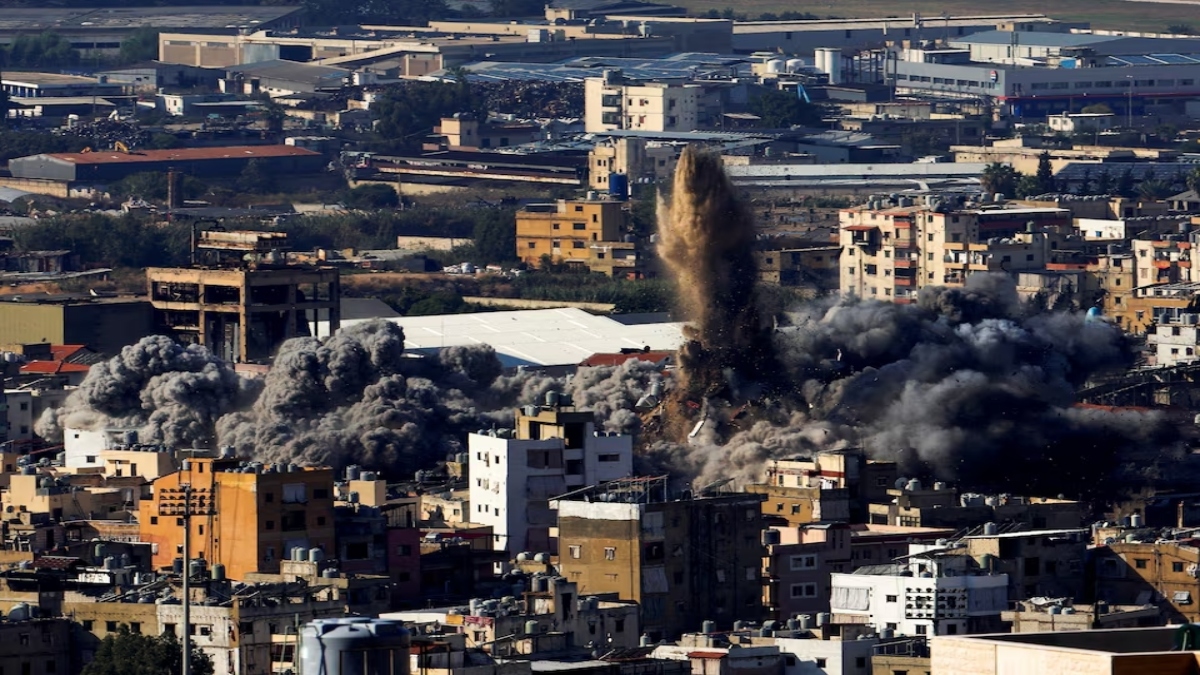Energy Minister Eli Cohen on Thursday said that Israel is closer to a potential agreement with Hezbollah than it has been since the war began, but must retain the ability to take action within Lebanon if any deal is violated.
“I think we are at a point that we are closer to an arrangement than we have been since the start of the war,” said Cohen, a member of the security cabinet, in an interview with Reuters.
A key sticking point for Israel, he says, is ensuring it retains freedom of action should Hezbollah return to border areas where it could pose a threat to Israeli communities.
“We will be less forgiving than in the past over attempts to create strongholds in territory near Israel,” Cohen added.
A senior Lebanese official on Thursday signalled that Hezbollah was ready to pull its forces away from the Lebanese-Israeli border in any ceasefire but rejected Israel’s demand for freedom to act against the Iran-backed group in Lebanon in the future.
Senior Lebanese official Ali Hassan Khalil, speaking to Al Jazeera late on Wednesday, said Lebanon was ready to “precisely” implement U.N. Security Council resolution 1701, which ended a 2006 war between Israel and Hezbollah.
Impact Shorts
More ShortsIts terms require Hezbollah to remove fighters and weapons from areas between the border and the Litani River, which runs about 30 km (around 20 miles) from Lebanon’s southern border.
Asked whether Hezbollah had informed him of a readiness to withdraw to the Litani, Khalil - a close Hezbollah ally and top aide to Lebanon’s parliament speaker - said the group had expressed its commitment to Resolution 1701.
The resolution, he added, “contained a clear set of provisions”. “Yes, the party is committed to what is stated in these texts,” he said, referring to Hezbollah.
The United States and other powers say a ceasefire must be based on Resolution 1701.
Israel long complained it was never implemented, pointing to Hezbollah weapons and fighters at the border. Lebanon in turn accused Israel of violating the resolution, with Israeli warplanes regularly violating its airspace.
Meanwhile, a response from Lebanon to the ceasefire proposal sent to Beirut by the US could come within the next 24 hours, Channel 12 reported.
Israel’s Strategic Affairs Minister Ron Dermer was in Washington this week to meet Biden administration officials on the finishing touches to the proposal, including written guarantees that Israel has freedom of action against Hezbollah threats in Lebanon.
Dermer also met with US President-elect Donald Trump on his trip, according to Axios.
Pressing its offensive against the Iran-backed group, Israel launched airstrikes on Beirut’s Hezbollah-controlled southern suburbs on Thursday, keeping up its unusually intensive bombardment of the area for a third consecutive day.
Israel has dealt Hezbollah heavy blows since launching its offensive in late September, escalating the conflict that had rumbled on in parallel to the Gaza war for a year.
Hezbollah has kept up rocket fire into Israel and its fighters have been battling Israeli troops on the ground in the south.
With inputs from agencies


)

)
)
)
)
)
)
)
)



